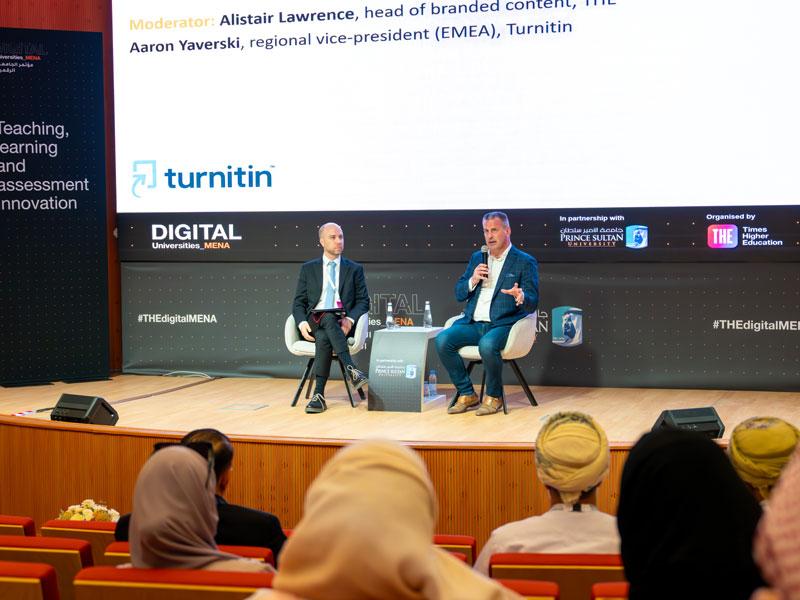
How can we teach AI literacy skills?

A question students regularly ask me is: will AI replace human workers? I imagine many educators may be experiencing the same thing, in particular, those teaching AI or business analytics-related programmes and modules. This is not a surprise. AI, in particular generative AI, continues to be a hot topic and is becoming more prevalent in all major industries, including education. AI could automate 10-30 per cent of jobs in the UK, and more than 75 per cent of companies globally intend to adopt AI and related technologies in the next five years.
Going back to the question, a common view is that AI will change the employment landscape. It will replace some professions and create new jobs, but it will not replace humans. Human workers, nevertheless, need to upskill and adapt to work with AI and machines. Many articles offer their interpretations of the key AI skills that professionals need to learn and develop. It then becomes clear that university students need to develop AI literacy skills for the future workforces. AI literacy has already been considered a key graduate attribute for university students.
What is AI literacy?
Building from and developing upon digital literacy, AI literacy is more complex and requires users to have some fundamental understanding of technical knowledge – ie, a basic idea of how AI works, what AI does and where AI tools can be applied, and the potential social and ethical implications of AI applications. In the context of generative AI, ethics and fact-checking are particularly important, because it can create new text-, video- or audio-based materials and other creative artefacts with ease. However, we are unclear about current students’ AI literacy level, even though it has been reported that some students have used generative AI tools to help them with their studies or assessments. Therefore, how can we, educators and universities, help and support students to move from A, that is, their current state of knowledge, to B, that is to become industry-oriented AI literates? The answer is AI literacy education.
- Resource collection: AI transformers like ChatGPT are here, so what next?
- Transition from expert to guide by embracing generative AI
- Three ways to use ChatGPT to enhance students’ critical thinking in the classroom
How can we teach AI literacy?
As the name suggests, AI literacy education refers to co-curricular or extracurricular modules or courses, offered by universities, and designed specifically to develop students’ AI (including generative AI) literacy skills. These courses and modules are aimed at undergraduate and/or postgraduate students, and can be delivered at the institutional, faculty or departmental level. The University of California, for example, designed a multidisciplinary campus-wide AI curriculum for undergraduate students. It focuses on developing students’ technical and ethical skills. City, University of London introduced a similar type of AI course for postgraduate students studying radiology.
This is clearly where we should be heading, but there is a shortage of guidance and practical examples on AI literacy curriculum design and pedagogical approaches, and in particular, discipline-specific strategies for enhancing student engagement and learning within particular subject disciplines. As a result, some important questions remain unanswered. For instance:
- How should university and academic tutors design and develop AI literacy courses for specific subject disciplines?
- What types of AI literacy skills should be included in this course?
- What teaching approaches are most effective in teaching AI literacy skills?
AI literacy course design
The questions raised above are mostly related to curriculum design. If universities consider offering an AI literacy course to students, the following recommendations may be helpful:
First, it is necessary to understand students’ current AI literacy level so that the course can better address the knowledge and skill gaps and meet student expectations. You can gain an understanding of current levels by conducting an AI literacy survey. You can then use the AI literacy framework, developed by Davy Tsz Kit Ng, Jac Ka Lok Leung, Samuel Kai Wah Chu and Maggie Shen Qiao as an underpinning framework to develop an AI literacy course. This framework includes four dimensions:
- Knowledge and understanding of AI
- Use and application of AI
- Evaluation and creation of AI
- AI ethics
It also suggests the essential AI skills (both technical and non-technical) that need to be covered in the course.
Third, tutors need to consider discipline-appropriate approaches to teaching AI literacy skills. Innovative approaches such as gamification, simulations and project-based learning have proved to be effective.
And finally, the skills covered in the curriculum need to be industry-oriented. Students need plenty of hands-on opportunities to use AI tools to solve problems and deal with challenges that they may encounter in their future workforce. For example, in one of my modules, I worked with more than 300 students at King’s Business School to create a rule-based chatbot as an additional assessment support tool. Through participating in the project, students learned about the advantages and challenges of using a chatbot in customer support, and how to create such a chatbot using Google Dialogflow. They were also able to test out innovative ideas to improve the chatbot’s efficiency.
The global workforce stands on the threshold of a major change in its composition. Universities are still unsure of how to deal with these technologies and how to incorporate them into teaching and learning. However, the technology isn’t standing still, and neither is industry; AI is being adopted and incorporated into everyday working operations and this process is increasing almost daily. Universities have made positive strides in improving digital literacy for graduates, but now they need to do the same for AI literacy.
Christine O’Dea is a senior lecturer in management and technology education at King’s Business School, King’s College London. Michael O’Dea is a lecturer in computer science at the University of York.
If you would like advice and insight from academics and university staff delivered direct to your inbox each week, sign up for the Campus newsletter.


